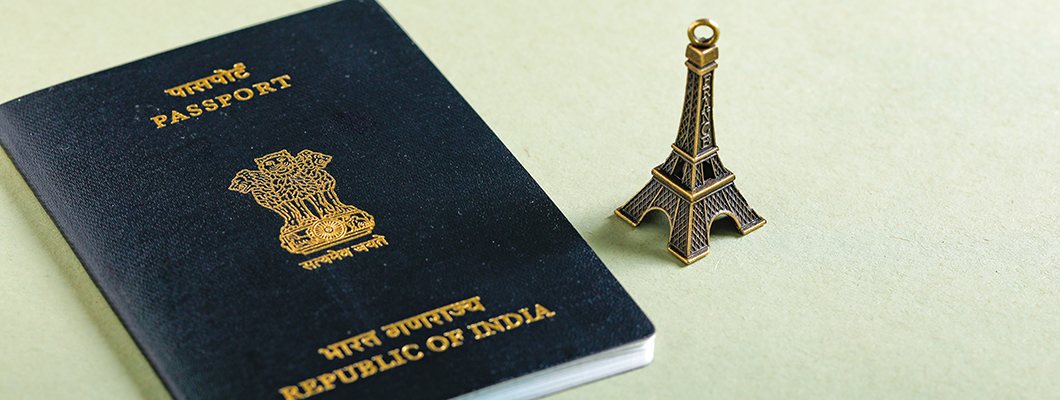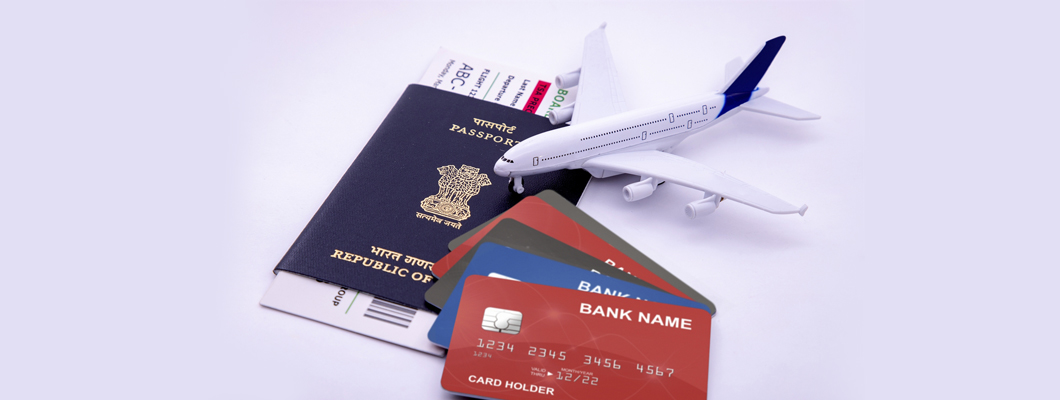
How to Make Your Foreign Trip Stress-free
Posted on Sunday, April 24th, 2022 | By IndusInd Bank
Whether you are a bonafide wanderlust or an inexperienced traveller, proper planning is a must for a hiccup-free trip. Otherwise, it defeats the entire purpose of going on a trip in the first place.
Ideally, you should plan your trip at least a month in advance. Why? Because last-minute foreign trips can cost you dearly in ticket prices and hotel charges. Not to mention, it can get pretty hectic as well. But how to start the planning? What to include and not to include? How should I carry money?
If you’re plagued with such questions, here are some tips to help you get started on your international trip planning.
Book your Tickets Early
Pick your destination and start browsing airfare prices, and bag them while they are low. If your destination is a tourist hotspot, you must book your hotel rooms well in advance to avoid paying a hefty premium.
Most importantly, book your return tickets before you leave. If you think you can make return travel arrangements towards the end of your trip, you might face challenges such as ticket unavailability or high prices. And being stranded in a foreign country or having a stressful and expensive ride home can spoil your trip.
Make an Itinerary
Whether your purpose is business or leisure, you should outline an itinerary. By doing this, you can estimate your expenses, know what to carry as you travel, and make the most of your time.
Also, while planning, make sure you take note of the weather conditions and carry clothing and other supplies accordingly. If you’re embarking on sightseeing-heavy, do check the costs of tickets, facilities, and travel.
Opt for a Prepaid Forex Card
A lot of travellers put off exchanging foreign currency till the last minute. Often, they have to exchange money at airports or hotels as a last resort. The rates you pay at these places are much higher than those of banks, so doing this is a sheer waste of money!
A cost-effective way to carry money is to buy forex card online and load it with the currency of your choice. Your foreign exchange rate remains unchanged after you load the card, protecting you from currency fluctuations. Moreover, if you’re going on a trip that involves travelling to more than one country, you can load multiple currencies in the forex card as well.
Pack Smartly
First, make a list of items you need to carry. Then, put only those items in your suitcase. Before leaving, double-check if you have all the things you need. While packing, try to save as much space as possible, and leave some room for souvenirs or other things you may need to take home.
Protect your Belongings
For every international traveller, the biggest worry is losing their passport, wallet, boarding pass, and other precious belongings. So, before the trip, make scans of all of your important documents like your passport and ID to make it easier to get home in case you lose them. Though you could apply for a temporary passport overseas, it can cost you a lot of time and money.
You could also buy travel insurance for your belongings to cover any necessary costs. Lastly, opt for a forex card to eliminate the worry of losing your cash. Even if you lose your card, you have the option to block it instantly, ensuring that no money is lost.
In Summary
Follow these tips, and you will be fully travel-ready even before hopping on the plane. So, book your tickets, pack smartly, and protect your money by carrying a forex card. Bon voyage!
Disclaimer: The information provided in this article is generic in nature and for informational purposes only. It is not a substitute for specific advice in your own circumstances. Hence, you are advised to consult your financial advisor before making any financial decision. IndusInd Bank Limited (IBL) does not influence the views of the author in any way. IBL and the author shall not be responsible for any direct/indirect loss or liability incurred by the reader for taking any financial decisions based on the contents and information.



 Offers
Offers Rates
Rates Debit Card Related
Debit Card Related Credit Card Related
Credit Card Related Manage Mandate(s)
Manage Mandate(s) Get Mini Statement
Get Mini Statement
 categories
categories Bloggers
Bloggers Blog collection
Blog collection Press Release
Press Release


